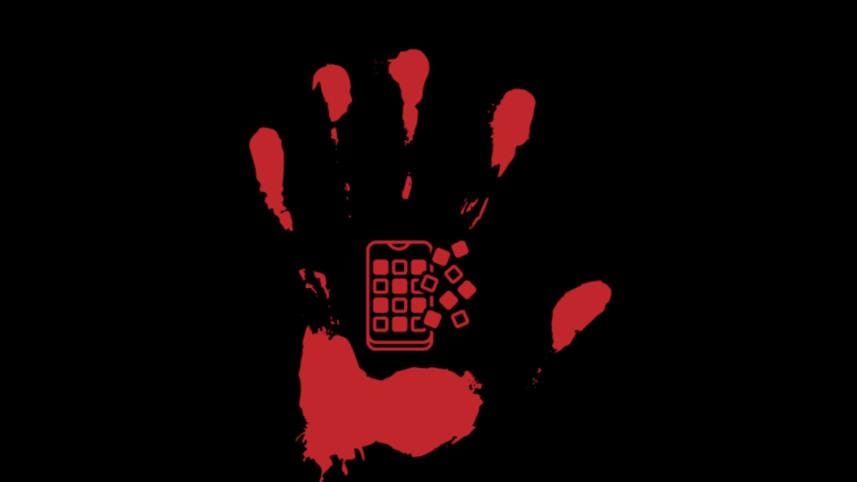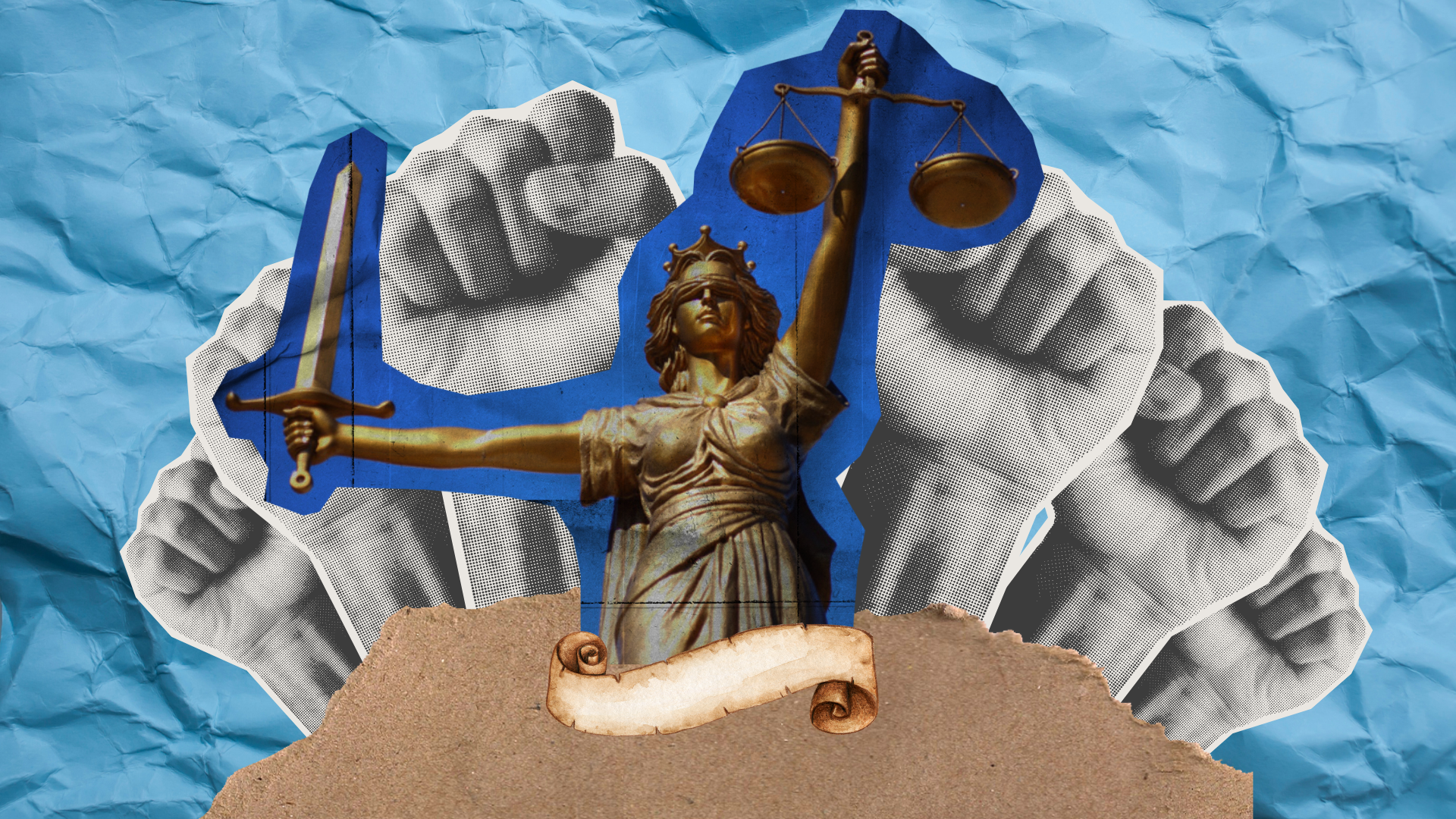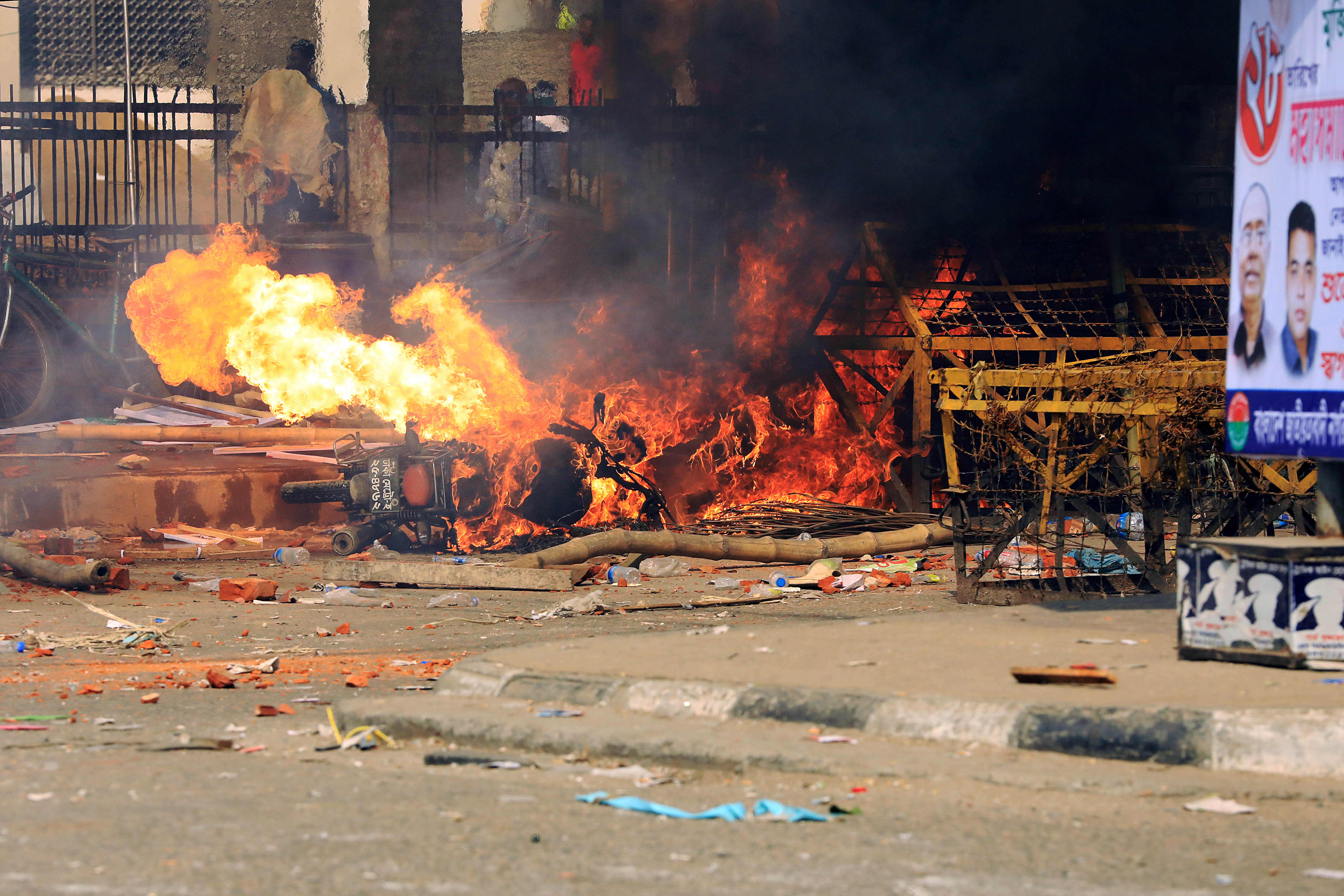A call to end the cycle of revenge politics

In his lecture titled "Justice Without Violence," Martin Luther King Jr. stated, "The first thing that we can say about this method that seeks justice without violence, is that it is not a method of power, that is a stagnant passivity. It's not a method to be used by persons filled with fear or persons who are merely lacking in weapons of violence. It is not a method of cowardice. As Mahatma Gandhi used to say, 'If the only alternative is between violence and cowardice, I would say use violence,' but it's good that there is another alternative."
This quote by King holds significant relevance for movements, protests, political parties, and even for nations as they strive to position themselves against injustice. How one portrays themselves in their fight against injustice speaks volumes about their values and intentions. Hence, the methods one employs to combat injustice are crucial. From a nonviolent perspective, King asserted, "You not only refuse to shoot a man, but you refuse to hate him."
Whether political actors in Bangladesh can set aside their animosity and cease to use either administrative or armed forces to crush the opposition is no longer just a practical question but a pragmatic one. The tendency to humiliate and seek revenge through violence only deepens political distrust and perpetuates cycles of retribution with each change in the government. This cycle is counterproductive, as those in power often resort to fear and violence, assuming that they would also be treated in a similar way when they lose power. This fear drives politicians to launder money to foreign countries and seek security and protection outside their native land in times of trouble.
This cycle persists because Bangladesh's political landscape has long been marred by a troubling pattern: political parties, at various times, have resorted both to overt and covert violence to stifle dissent and strip away the democratic rights of the people. These tactics have fostered a climate of fear, silencing the voices of ordinary citizens and intellectuals. As a result, the nation has been deprived of the freedom to speak openly, engage with uncomfortable truths, and debate ideas. The atrocities committed against protesters just before the fall of former Prime Minister Sheikh Hasina stood out as a profound humiliation of human life, reducing the citizens to nothing. Consequently, the protesters retaliated with a collective force that led to the dramatic fall of Hasina's government.
The lesson learned from the July uprising is a clear one: when those in power resort to extreme humiliation of the populace, it often backfires spectacularly. Regimes that appear unassailable can crumble quickly when they alienate the very people they seek to control. In the complex world of modern politics, where multiple actors compete for power, the consequences of misreading public sentiment can be catastrophic. Political parties often view their fight for power as a zero-sum game, in which the winners take all the pride and glory, thus overlooking the fact that public sentiment can be as volatile and unpredictable as the political actors themselves. If this mindset and culture of violence become the norm, any political party seeking power might come to view violence and revenge as the only way forward.
However, this endless cycle of violence and revenge must end at some point and justice needs to be served without violence. Nonviolence can be the cornerstone of justice. Judicial procedures must be carried out with fierce independence and fairness, ensuring that justice is served from a perspective of peace and equity.
To break the cycle of humiliation, violence, and revenge that has plagued the political landscape of Bangladesh, the authorities must act decisively to prevent any form of violence—whether physical, psychological, or rhetorical—against anyone, including perceived opponents. However, justice cannot be served without uncovering the truths. But then the question arises: whose truth, and for what purpose is the truth being sought, established, or utilised? Truth is often discursive in political landscapes. Political actors might engage in creating and spreading falsehoods that help them gain political traction or momentum.
For example, during recent student protests, police brutality was often framed as a third-party intrusion rather than the responsibility of the police force or the administration. Similarly, following the fall of Hasina's government, acts of vandalism and personal grievances were carried out, which were not directly linked to the student movement. Yet, the movement was at times accused of political violence carried out in its name. This created ambiguities about who did what, why, and how. Different versions of events emerged over time, further fuelling tensions, distrust, and hatred among individuals, groups, and political actors with diverse ideologies, religious beliefs, and identities. This, in turn, perpetuated more violence and solidified a cycle of revenge politics, affecting both the victors and the vanquished.
The situation was further complicated by the (mis)use of social media. Spreading misinformation, hate, and humiliation became one of the cheapest and quickest methods to encourage endless violence and revenge.
However, things do not have to remain this way. There is an alternative to the cycle of violence and revenge politics that we have recently witnessed in Bangladesh. Political imaginations for the common good should have no boundaries, and a politics based on nonviolence is not an impossibility.
If the authorities could establish a fair and transparent procedure to investigate the truths about the atrocities committed during the movement—such as who was responsible for the brutalities, who gave the orders, and how these actions were carried out—they could create a path towards long-lasting peace. It is also crucial to understand why and how acts of vandalism and communal violence occurred in the aftermath of the Hasina government's fall. Most importantly, once the facts about various violent acts are known, providing justice to the victims through a transparent judicial process would not only serve justice but also pave the way for enduring peace.
Failing to do so would trap us all in an endless cycle of political violence and revenge, which should ideally be considered unacceptable by every conscientious citizen of Bangladesh. We should strive for peace and use nonviolent means to achieve democracy, voting rights, well-being, and dignity for all citizens, regardless of their political or religious affiliations. Only time would tell whether these possibilities were realised and whether our ordinary citizens were able to secure a life free from humiliation, intimidation, and violence.
Dr Rashedur Chowdhury is professor of business and management at Essex University. He can be reached at rc22489@essex.ac.uk.
Views expressed in this article are the author's own.
Follow The Daily Star Opinion on Facebook for the latest opinions, commentaries and analyses by experts and professionals. To contribute your article or letter to The Daily Star Opinion, see our guidelines for submission.




 For all latest news, follow The Daily Star's Google News channel.
For all latest news, follow The Daily Star's Google News channel. 

Comments